
We are here in Israel ahead of Michael Wardian‘s #fktisrael attempt, a 631-miles in Israel running the Israel National Trail.
The team arrived in Eilat March, 9th and 12th to prepare. Zoli Bihar and Erez Ganescu are providing planning and essential back up and support for this record attempt.

The Israel National Trail, is a hiking path that was inaugurated in 1995. The trail crosses the entire country of Israel. Its northern end is at Dan, near the Lebanese border in the far north of the country, and it extends to Eilat at the southernmost tip of Israel on the Red Sea, a length of 1,015 km (631 mi).
The idea for this FKT was created by Zoli Bihari of Canaan Running Adventures @CanaanRunning on FB and IG

The Israel National Trail has been listed in National Geographic’s 20 most “epic trails.” It is described as a trail that “delves into the grand scale of biblical landscapes as well as the everyday lives of the modern Israeli.”
Michael will start his FKT attempt on Tuesday March 12th at sunrise. Ahead of his departure, I caught up with him to find more about this epic challenge.

Ian: Michael we have been out there to do a little bit of recce on the course, it’s stunning so far, really incredible! What is it that fired you up about running over 600 miles from one end of Israel to the other?
Michael: I met a guy named Zoli at a race that you’re very familiar with (The Coastal Challenge) and I love, last year in Costa Rica. At first what fired me up about it was just Zoli’s passion for Israel and the trail running there and I have to say I knew nothing about that. I didn’t even have that on my radar. It was something that just wasn’t even a thing for me. My sister has been a few times….
She has some Israeli friends that she’s visited, and I remember freaking out like the first time she went just because of the media here in the US. When she returned, I said,” Wow” – It opened my eyes.! She told me how great the food was, the people were so interesting and the countryside sobeautiful.
It peeked my curiosity. Ithen met Zoli and he told me that there is a re al trail running scene.
I visited in December and I ran a few days. Weird really, I didn’t even know they had ultra-marathons there. It was just like a blank spot on my consciousness. It was something else, I had listened to the media, “That place is dangerous, that place is somewhere that if you are an American you want to avoid.” I’m sure Iran is amazing and there’s probably beautiful parts -for example!I went to Cuba a couple of years ago and that was the same thing. I was like, “This place is incredible,” It’s too bad we don’t get to explore that part of the world and so when Zoli mentioned Israel, I was like, “Wow that’s really interesting”.
Importantly, in my progression as a runner, I want to do some longer, bigger things and I’ve been inspired by people that have run across the country (USA). I work full-time and have a family, so, to disappear for a month or more is not possible. However, the opportunity to sneak away for hopefully 10 to 15 days is a little bit more manageable at this point in my life. The FKT is going to be a bigger undertaking than anything I’ve ever done and its nerve wracking and exciting – it’s something where I’m always looking for the opportunity to evolve as an athlete.
I’ve been really embracing the FKTs and that kind of way to explore what one Is capable of. It is an opportunity to explore a different way of challenging oneself. It’s also a building block to further challenges, “Yes, I definitely want to try to run across the US. Then if that goes well, it’d be fun to run across other continents and maybe ultimately doing a run across Antarctica – that would be amazing.”
Ian: One thing that’s great about running and hiking or just moving via foot is that it’s about the journey. Travelling from one end of a country to the other or travelling across a country or basically travelling on a trail, there’s something really, really satisfying about making that journey in a semi or self-sufficient manner.
I like you was contacted by Zoli and he asked would I document the FKT.
Of course, my initial reaction was yes. Then I thought, “Hold on a minute, Israel. Okay. There’s Syria at one end, there’s Jordan, there’s Egypt, there’s Saudi Arabia, there’s the Gaza Strip. What have I just let myself in for?” [I’ve had a few messages from people since we announced that the FKT was going ahead and they said, “Hey, are you going to be okay? Is it safe?” Of course, my answer was immediately, “Yes of course it is.” Then I thought, “Actually, is it?”
I went on the on the UK embassy website and put in Israel, I asked, “is it safe to travel?”
They basically said, “Yes, there’s nothing to be scared of.” Obviously, as in any of these countries, they say you need to be logical and sensible and don’t do anything silly, but effectively if you’re missing out the Gaza Strip or one or two of the red areas then everything’s fine.
The Israel National Trailwas created by, Avram Tamir, actually, he got the idea because he hiked the Appalachian Trail in the US.

Michael: Yes, that’s true, yes.
Ian: There’s a really nice connection there, the fact that somebody goes to the US, does the Appalachian Trail, and then basically wants to take that concept back to Israel and creates a trail that goes from one end to the other.
It seems as though most people, if they’re going to do this, start in Kibbutz Dan and then go down towards Eilat. We’re actually going do this FKT the opposite way around, we’re going to go from Eilat to Kibbutz Dan.
Michael: Yes, that’s the way that we’ve designed it in. I’ve researched it both ways and it is Zoli’s suggestion to go south to north. I did a recce in December and checked out the terrain and it makes a lot of sense.
The northern end, where you were talking about, Kibbutz Dan, that’s a little bit more urban and it’s less restrictive as far as travel, so, if need be, we can run into the night.
If you start in the north, one is tempted to run bigger miles at the beginning, and I think that’s what a lot of people try to do. Then they end up getting to the desert and they’re more restricted by the night. The south is more challenging too and hence slower.
We’re thinking that it’s better to tackle, the harder part at the beginning when you’re a little fresher. Ialso think that actually having the restrictions of moving at night should be a good thing, it’’s almost like a governor. I cannot get too excited and run too much!
The route finding is maybe a little bit more difficult in the South too from the looks of it. It piggybacks on local trails, so, I need to make sure I don’t get lost. He based it on the Appalachian Trail. The Appalachian Trail does a similar style where there is the Appalachian Trail that’s 2,000 miles or something. Offshoots of that are just local trails that everyone uses. Also, you can jump on the Appalachian Trail for 10 miles or 20 miles or 40k.
You’ve got to make sure you know which marker you’re looking for. You’ve just got to know where to look. I think that’s going to be something – to try to stay on the trail. Luckily, with modern technology I can use GPS for back-up.
As I move forward, I want to try to embrace the Israeli running communion and I think we’ll be able to draw more people out and be part of the journey as we move North rather than South. It’s more populated. It’s easier to get people out on the trails to be a part of it.
Ian: In terms of logistics Michael, it’s interesting if you look at the distances for the trail because they don’t seem to be some varying distances. I’ve read on one site, it’s 693 miles, I’ve read on another 631. Let’s estimate that it’s going to be somewhere in that ballpark. It seems as though most people like to try and do it in 30 or 40 days, and you’re going to go for 10, which is effectively 100k a day. It’s quite a challenge. How many hours a day early on do you think you’re going to be able to play with? Obviously, should you get behind later on in the attempt, where the flexibility is greater for running during the night, you can obviously extend your time. Originally what sort of time frame are you working on the early days?
Michael: I think that it’ll be interesting because some of the terrain is challenging. You’ve got some climbing, soft sand, I don’t know, people think of the desert and they think it is like beach sand. Most of the time, it’s not really like that. The deserts that I’ve been in so far, like the Gobi or the Sahara or the desert in Israel, it’s more of hard crusty dirt and rocks.

Some sections I should be able to run pretty quick. One section is really interesting that is 50 or 60 kilometers long where one is running between two military training areas. It’s pretty cool, but it’s basically just like this gravel road, almost. I have done my research with runners like Scott Jurek, Karl Meltzer and others – I will look to break my day down with say a marathon, a break for food and then another marathon.I will also add miles depending on time and how I feel.
“I just want to keep moving the whole day,” I have a crew to look after me, so, let’s see! The local run community will be key too.
It’s similar I feel to the community spirit you get in the UK when you’re trying to do like the Bob Graham Round or the Ramsay Round, local runners love to get involved. Or even like here in the USA when you’re doing the Appalachian Trail or the PCT or the Continental Divide Trail – you have trail angels that come out and maybe drop some food, cash, some water for you or just come and run with you for 10 miles…
I was surprised when I did the FKT here in DC. I ran basically a little around 300 kilometers in 36 hours. I had no impromptu aid stations and then groups of like 15 or 20 people that would join with me for a bit. Other sections I was alone, but for the most part, it just became this thing and I’m hoping for something similar in Israel. I just did an FKT on a trail right by my house and I probably had 40 people that came out, it was awesome.
ZoliIs pretty detail oriented and he’s prepared this incredible spreadsheet with estimated times at all the places. It’s nice to have a target each day, but if some days I go more than 100K, we can do that, equally, I may need to do less?
Ian: Yes. The thing is you have to have a time frame to work to otherwise, it just becomes an uncontrolled endeavor. It’s good for you to understand that maybe you need to try and cover X number of miles per day. Also, for myself Zoli and Erez, we need to have an idea of your ETA in places.I’m going to be documenting what’s happening, but also, I’ll be crewing as well, we’re going to double up. We need that timeframe to understand what your objective is and the speed that you’re moving.

Like you say, on something like this, there’s going to be times when you’re clicking along on good hard trail and then other times when moving slow.
Michael: That’s what I was going to say. Just from the little small part that I witnessedin December, some of it it’s like, ‘Wow, you can move pretty quick.” In other parts of it, you’re like, “Huh, this is going to be slow. I’m going to be going like 5k an hour here.”
Ian: Absolutely. National Geographic,has listed it as one of THE most epic trails out of a list of 20.
Michael: Totally, yes.

Ian: It seems as though it’s definitely a hidden secret. Of course, you undertaking this FKT is certainly going to open up this trail to a whole new audience, and it will certainly come on people’s radars. I have to admit, I was a little bit like yourself. I was aware of the trail because I interviewed a guy who had done FKTs in the past, who attempted this, an Australian, Richard Bowles.
Michael: He had some issue. I don’t know what happened. I couldn’t figure out. You interviewed him about that?
Ian: No. I interviewed him about another FKT that he’d done, but I knew that he tackled the Israel National Trail. I never quite got to the nitty-gritty of what happened. I loved one of the descriptions that I read. It says, “The trail delves into the grand scale of biblical landscape as well as the everyday lives of modern Israel.” I thought, “You know what? If anything made me want to go on this trail, it’s that.”
Looking at the map, you seeJerusalem, Tel Aviv,Bethlehem – they’re all places that have been on my geography radar for such a long time. I get to travel a lot. I’m very, very lucky. But I never thought I would go here! We’re on this epic journey crossing the country. It really, really fascinates me. I’m sure you’ve done a little bit of research. Are there any particular points that you’ve looked at and you thought, “You know what? This is going to be amazing going through this area?”
Michael: I think that that’s a really great description or introduction to your audience. There’s some stuff that’s actually not on the trail that’s actually interesting too. We are going to be running through terrain that I mentioned in the bible. That really excites me. It may feel quite Spiritual, I am not sure, but I am keeping an open mind.
Zoli did a really good job just teasing me with some really cool parts. Canyons, ridges, a section with waterfalls and evenVia Ferrata,
I got this sense of peace and calm while I was out there, and I’d love to get that feeling again at some point. I don’t know if that’s only near Jerusalem and Tel Aviv, but I felt it in the desert.
Ian: I was just going to say this because I was having a look at the breakdown of the route and some of the places that they talk about and there’s the Naftali Ridge, the Ramim cliffs, these Kadesh Stream.
Michael: Those cliffs are amazing dude.

Ian: Mount Tabor, Tzippori Stream, Shayarot Range, Judean Mountains, Yatir, Dragor quarry, Mamshit stream and then it’s mentioning words like Jerusalem and I’ve already got images in my mind…
Michael: That’s what I was going to say. You’re just like, wow, okay, I hope there’s room for us at the inn!
Ian: Absolutely.
Michael:It’s like, wow, this is crazy.
Ian:It motivates the mind and of course until you get there and start to experience that you don’t really know what it’s going to be but certainly my anticipation is high.
From an ultra-running community and a trail-running community perspective, most people just seem to naturally think that Michael Wardian is the perfect person to try aFKTlike this, primarily because it seems though you just never stop running Michael.
I have interviewed you many times, but I think back to our interview a few years back when I spoke to you and basically you were just fractured all over from running.
You had stress fractures everywhere, almost to the point that, for a time, you didn’t quite know what running was going to be after. I remember having this chat with you and saying,“I future you’re going to have to run a little bit less and control yourself.”You replied, saying, “Yes, yes, yes, I’m going to be more sensible.” Then it just seemed as though within a couple of months, forget that. You were back to running a marathon one day, running an ultra the next day. Then once you finished an ultra, getting in your car and going running a 17-minute 5k at a park run or something.
What is it that is in your psyche, because you’re a family man, you’ve got kids, you’ve got a busy professional life, what is it that just makes you want to run so much?
Michael: I just love it. I love all aspects of it. I like the hard work that I put into it. I love the training. I love doing the little things. At 5am today I’m heading to my coach to do strength training, mobility and pliability, but I also think that the reward for doing all those little things and putting the time and energy in is the chance to compete against other people and yourself, the opportunity to be out there pushing the boundaries of what I think is possible for myself and the exhilaration you get when you toe the line. I don’t know about you, but when you have that brief moment before the race, when you have the expectation of whatever It is, you’re trying to do, you have this idea and then you actually go and prove it. It’s like solving a scientific problem!
I may say, “Yes, I’m going to run across Israel in 10 days and I’m going to do this and I’m going to do that.” But, to actually have the courage to stand there and try it is what fascinates me. I may fail, but I have to try.
Then once you start, that’s when actually all of the fun starts. I have to decide, “What kind of pace am I going to run?” It’s like playing a game. I have set myself a target of ten days, but I have no idea how I will feel. What the weather will be like. How my legs feel. Will I have stomach issues, and so on, and so on. It’s a complex game and that is what is interesting.
I love that aspect when one is not quite sure. I have a good idea of how I things will go, but who knows? For me, that’s the reason I like to be out there. It’s an opportunity, it’s real, it’s raw. There’s no subjectivity to it, it’s you either do it or you don’t, and it’s very binary.

You’re like, “I’m going to knock this out in a couple hours,” and all of a sudden it gets hard and you have got to decide how to proceed. There’s always that point in a race where you decide, “Am I going to give in? Or am I going to master this? Or am I going to be able to overcome this?” I love that experience that one has. It’s so many little binary decisions that you have to make, “Do I go faster? Do I go slower? Should I eat now? Should I stop? Should I change my shoes? Should I change my socks? Should I take on more water? Should I drink more?
All these little things one has to navigate.Even if one does this perfectly, it doesn’t necessarily mean I am going to end up where you I want to be. If I do it poorly, sometimes I can just overcome. The opportunity to be out there and learn something more about myself, that’s what I want to do as an athlete. I want to continue to evolve. I want to be able to do more things and bigger things, but I also want to do the things I do well and hone those and tweak those. I don’t know, it’s a craft to me, it’s part of who I am and what I do. Every time I go out there, I feel I become a little better at what I do.
I definitely like to be out there and racing. already this year I’ve done 13 or 14 events and I set a world record for the 10 marathons in 10 days. Last weekend, I just did an FKT and before that I did probably arguably one of the harder 100 milers in the world, the HURT100. It’s been a pretty big, amazing year already. This FKT will be that next progression for me.
Ian: Absolutely. Our journey starts on March 12th. Target is 10 days for the FKT. Obviously, what we’re going to be doing is updating everybody as this happens as much as we possibly can, and the hashtag is going to be #fktisrael. There’s also a Facebook page which is FKT Israel. We’re going to put a link to all these below. Obviously, we’ll get uploads on Mike’s personal Facebook page. There’ll be @talkultra on Twitter. There’ll be @iancorlessphotography on Instagram and my feeds on Facebook.
We’ll put all these links in and of course Zoli and Canaan Running who are behind the organisation of this. There’s going to be hopefully plenty of media, of course folks this is reliant on the wonderful world of 3G 4G andInternet connections. We are going to be in some remote places, so, bear with us if there’s gaps in feeds and getting things out there and of course, to make this all official, Mike is going to be using multiple instruments to track his progress. One will be his Garmin inReach. I think you’re going to use a polar as well. Is that correct Michael?

Michael: Yes. I have a polar vantage. I’m going to try to upload all that data to Strava. That’ll be one way I do it and then I have a Garmin inReach that I’m planning to use, and I think Zoli is actually going to rent another one there just in case we have any issues with mine. But hey, Ian, I am hoping you will join me some days.It would be fun to share some kilometers and miles with you.
Ian: Yes, I think most certainly, I’ll be on the trails with you at some point. We obviously have to balance this with my role to document what you are doing.
Michael: Yes, exactly. We can’t just hang out the whole time.
Ian: Exactly. Running with a camera does take a toll but I’m sure there’s going to be opportunities for myself and Zoli to spend 5K with you, 10K with you. Now the FKT is imminent.
Michael: It has been almost a year ago now since Zoli first mentioned this. It’s been bubbling in the background. We weren’t sure it was going to happen. I have got to give a big shout out to Zoli and his team for helping to put this together and then for you for being able to make it fit your schedule because I know how busy it is.
Lastly, I want to also just put an invitation out there to anyone that’s reading, especially if you’re close to Israel or based in Israel. We are completely open to people coming out on the trail. I’d love for people to be a part of it in any way. If you want to run with me that would be amazing, or if you want to just come in and cheer, or set up an aid station, or just come out and heckle me that’s all welcome. I look forward to a being out there and sharing the amazing trail with everyone and the opportunity to see what is possible.

The entire FKT will be documented here on iancorless.com on Instagram at @iancorlessphotography and on Twitter @talkultra – I will be providing an extensive photographic story that will delve into the entire FKT showing the highs and lows of this epic undertaking. In addition, there will be regular stories and videos to help explain this journey across Israel.
More detail and information will follow every day. #fktisrael will have updates and information.
#thenegevfriendlydesert
#runningvacation
#canaanrunning
#trailrunning
Follow on:
Instagram – @iancorlessphotography
Twitter – @talkultra
facebook.com/iancorlessphotography
Web – www.iancorless.com
Web – www.iancorlessphotography.com
Image sales –www.iancorless.photoshelter.com


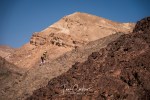
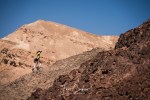
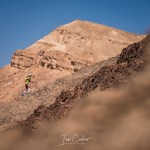
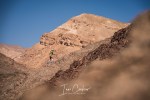
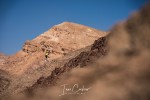
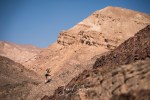

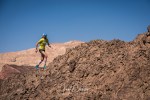

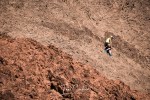
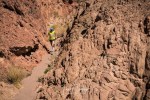



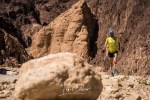
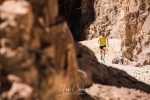




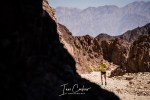
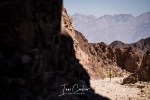
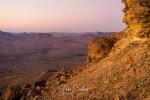


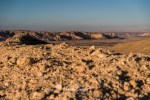
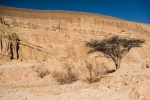
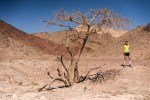
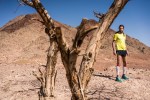
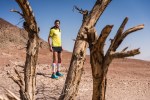
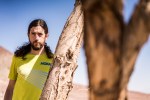

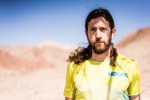

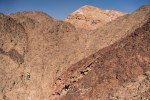

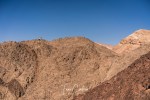

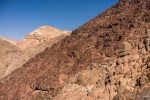

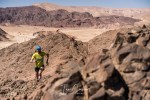
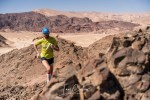
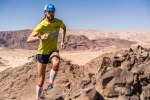
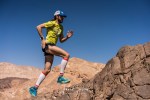

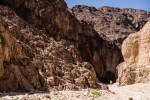
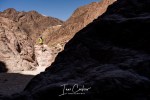

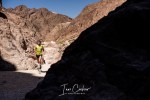
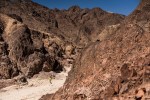
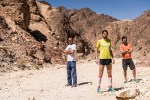

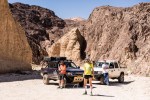


Pingback: Mike Wardian #FKTIsrael T-1 Day | iancorless.com – Photography, Writing, Talk Ultra Podcast
Pingback: Michael Wardian #FKTIsrael – Pre FKT Interview and Photos – TelecomBiZZ